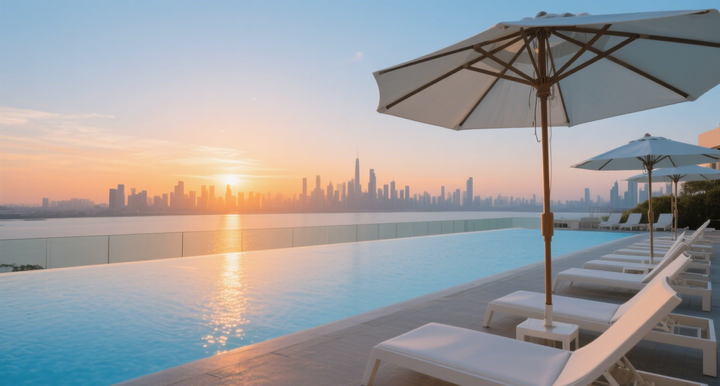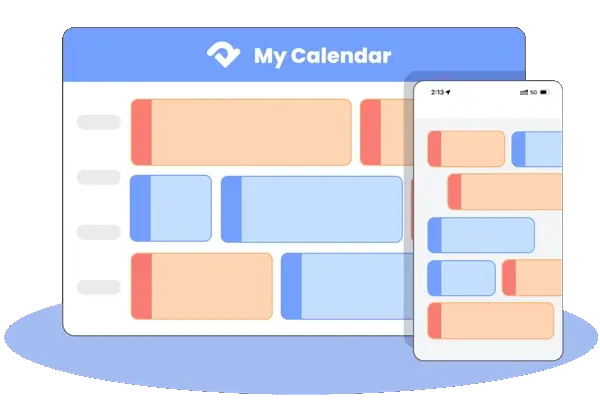In today’s digital age, social media isn’t just a nice-to-have tool for hotels—it’s a make-or-break channel that connects you directly to potential guests. For hotel managers, this means a strong social media presence isn’t just about brand awareness; it’s about turning scrollers into bookers.But with so many platforms and content options, where do you start? This guide breaks down a step-by-step social media marketing strategy tailored to hotels—one that’s focused on real results, like more direct bookings and loyal guests. No fluff, just actionable tips you can implement right away.
Know Your Audience and Brand: The Foundation of Success
Before posting anything, ask yourself two things: Who are your guests? What makes your hotel special? Without clear answers, your content will feel messy, and you’ll waste time reaching the wrong people.
1. Understanding your guests
Check your hotel’s data (PMS or Google Analytics) for details like age, travel purpose, and nationality. Example:
If 60% of your guests are business travelers aged 25-45, your strategy will differ greatly from targeting families with young kids.
Business travelers care about workspaces and fast Wi-Fi.
Families prioritize kid-friendly pools or nearby attractions.
2. Identify your hotel’s unique strengths (USPs)
Don’t just say “great service.” Be specific:
“Private beach access” or “Free bikes to explore town.”
These unique features should drive your social media content—they’re why guests choose you over competitors.
3. Match your brand’s voice
A luxury boutique hotel? Use elegant, polished language.
A budget hostel? Keep it fun and casual.
Consistency is key. If your Instagram is friendly, your Facebook should feel the same. This builds trust—people know what to expect from your brand.
Choose the Right Platforms and Create Content That Converts
Not all social media platforms are equal for hotels. Trying to manage every platform will spread you too thin, so focus on the ones where your target audience spends the most time. Here’s a breakdown of the top platforms for hotels and how to use them effectively:
Facebook: Great for Families and Local Engagement
Facebook is ideal if your hotel caters to families or travelers aged 35 and older. It’s also a strong tool for promoting events like weddings, conferences, or local partnerships. Use the “Book Now” button to link directly to your booking website—this cuts down on steps for guests and increases conversions.
For content, post live streams of chef demos in your restaurant or virtual tours of your event spaces. You can also run simple contests, like “Tag a friend you’d bring for a weekend getaway, and both of you could win a free night.” This boosts engagement and gets your hotel in front of new people.
Instagram: Perfect for Visual Storytelling
Instagram is all about visuals, making it a must for hotels targeting millennials, Gen Z, or luxury seekers. Use Reels to show quick room tours—focus on details like cozy beds, ocean views, or stylish decor. Stories work well for interactive content, like polls (“Pool day or beach day?”) or Q&As (“Do we allow pets?”).
Don’t forget user-generated content (UGC). Encourage guests to tag your hotel in their photos with a sign in your lobby or a follow-up email after their stay. Repost their photos (with credit, of course)—3.9x more guests book hotels that show real guest experiences, not just professional photos.
TikTok: Reach Gen Z and Budget Travelers
TikTok is blowing up for travel ideas, especially with Gen Z. Short, fun videos work best here. Try making clips like “A day at our hostel” or “5 city tips from our hotel.” Jump on trending sounds too – if a song or audio is hot, match it to your hotel’s vibe.
For example, film one of your staff: greeting guests at check-in, setting up breakfast, or helping a family plan their day. This shows the real people behind your hotel and helps young travelers connect with your place.
LinkedIn: Target Business Travelers and Event Planners
LinkedIn isn’t just for job seekers—it’s a valuable platform if your hotel hosts corporate events or caters to business travelers. Post content like “Our conference room setup for small business meetings” or “Why business travelers love our 24/7 workstations.” You can also share thought leadership pieces, like “3 Trends Shaping Hotel Stays for Remote Workers.”
Partner with local businesses to expand your reach. For example, if there’s a big tech conference in town, team up with a nearby coffee shop to offer a “work and stay” package—promote it on LinkedIn to event planners and conference attendees.
How to Execute Smartly: Timing, Engagement, and Influencers
Having great content is one thing—getting people to see and act on it is another. Here’s how to make your strategy work:
Post at the Right Times
Posting when your audience is active ensures your content doesn’t get lost in their feeds.
- For Facebook, the best times are Wednesdays at 3 p.m. and Thursdays/Fridays between 1-4 p.m.—avoid Sundays, when engagement drops.
- On Instagram, aim for Tuesdays/Wednesdays at 6-9 a.m., 12-2 p.m., or 5-6 p.m.
- For TikTok, Fridays at 5 a.m. or 1-3 p.m. works well, as that’s when Gen Z is scrolling.
Engage to Build Community
If a guest leaves a comment on your post, reply to it—preferably within 24 hours. Even negative comments are an opportunity to show you care.
For example, if someone complains about a slow check-in, respond with “We’re sorry to hear about your experience—please send us a DM so we can make this right and ensure it doesn’t happen again.”
Share guest posts and tag them too.
If a guest posts a photo of their kids enjoying your pool, repost it with a note like: “Love seeing these happy faces at our pool! Thanks for sharing, @guestname.” This makes guests feel appreciated and encourages others to post about their stays.
Partner with the Right Influencers
Working with influencers can help more people see your business, but you don’t need big celebrities. Try micro-influencers instead – those with 1,000 to 5,000 followers. They often get more likes and comments (many Gen Z folks trust them more than famous people), and they’re cheaper too. Lots will even post about you just for a free stay.
Pick influencers who fit your brand. If you run a fancy hotel, team up with people who post about luxury trips. If you have a budget hostel, find travel bloggers who talk about affordable adventures. Before you start, set clear goals – like “get 10,000 views on their TikTok” or “bring 500 people to our booking page” – so you know if it worked.
Measure and Optimize: Prove Your Strategy Works
As a hotel manager, you need to show that your social media efforts are driving results. Here’s how to track and improve your strategy:
Focus on the Right Metrics
Don’t just track likes—focus on metrics that tie to bookings:
- Follower Growth: Are more people following your accounts? Slow growth might mean your content isn’t resonating—try posting more UGC or local guides.
- Engagement Rate: How many people are liking, commenting, or sharing your posts? A low rate could mean you’re posting at the wrong times or your content is too generic.
- Click-Through Rate (CTR): How many people are clicking links to your booking page? If CTR is low, test stronger calls to action (CTAs)—like “Book now for 15% off your stay” instead of “Learn more about our rooms.”
- Conversion Rate: What percentage of people who click your links actually book a room? Use UTM parameters in your links to track this in Google Analytics. For example, if you post a link to your booking page on Instagram, add a UTM tag like “source=instagram&campaign=summer-sale” so you can see how many bookings come from that post.
Use the Right Tools
Most social media platforms have free analytics tools: Facebook Insights shows you follower demographics and post performance, while Instagram Insights tells you when your audience is active. For more in-depth tracking, use tools like HubSpot (to track conversions) or Google Business Profile (to see how many people are calling or getting directions to your hotel from social posts).
Final Thoughts
Social media marketing for hotels doesn’t have to be complicated. Start by knowing your audience and brand, choose the right platforms, create content that shows experiences, engage with your community, and track your results. By focusing on actionable steps and real results, you can turn your social media accounts into a powerful tool for driving bookings and building loyal guests.

